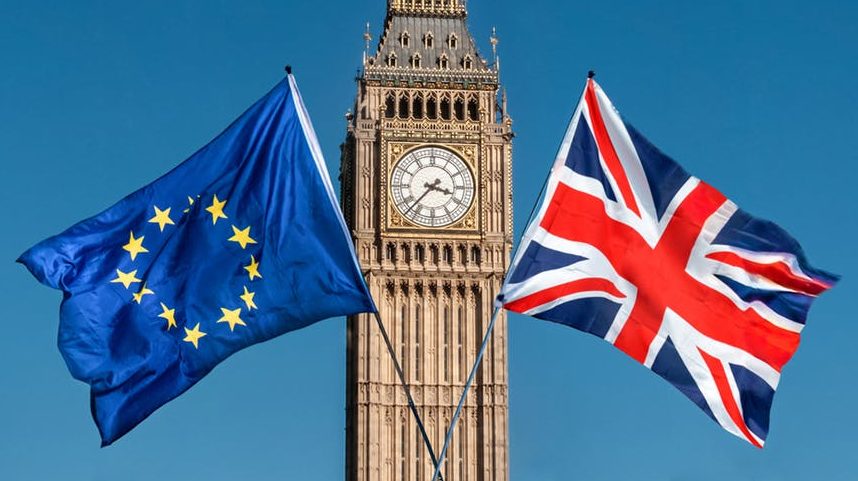What Does Brexit Mean for You?
In 2016, British voters chose to leave the EU, igniting a huge debate on how this would affect logistics within the Union. Importers and exporters; along with Forwarders/Customs brokers, are having to plan for three different scenarios – none of which are clearly defined, let alone decided. UK Government departments are trying to map out each scenario, but with varying degrees of detail as the landscape keeps changing. The effective date of the departure was due to be today, March 29, 2019. This date has arrived, and it is still unclear on whether a withdrawal agreement will be approved by 11:00 p.m. tonight UK time, paving the way for the departure on May 22, 2019.
The good news as far as trade between UK and the US is concerned, nothing changes. In fact, under a no-deal Brexit there could possibly be advantages to the US as the UK Government has indicated that they will reduce or drop some import duty tariffs. The changes and their impact only affect inter-EU and intra-EU trade and freight movements.
What is Brexit?
Brexit – ratified by the decision of the UK via a public referendum 2016 – is the decision of the UK to leave the European Union (The EU). The UK and the EU are currently in the process of negotiating the terms of the split with multiple options in what the UK press is referring to as “No Deal Brexit,” “Soft Brexit” and “Hard Brexit.”
Option 1 – “No Deal Brexit”
In the event of this scenario, Her Majesty’s Revenue and Customs (HMRC) are currently exploring the possibility of initially allowing goods to be ‘waved through’ British Ports, without any border checks.
Under government plans exporters and importers, or their agents, or truckers, would file a simplified form online in advance and, for UK imports, pay any duties and taxes later, in a bid to avoid major delays at the border. The exporter or importer would then have to update the computer entry within 24 hours to tell HMRC the goods have departed or arrived. The proposals are being considered as a temporary fix that would last for at least a year to avoid serious shortages in goods and other supplies and delays at ports.
Under the plans, called Transitional Simplified Procedures (TSP), registered businesses (EORI/VAT registered) would be able to transport goods to and from the EU without making a full Customs declaration at the border and would be able to postpone paying UK import duties until the month after import. It is not clear what arrangements the EU might make for the immediate or deferred payment of their import duties and taxes.
Option 2 – “Soft Brexit”
In this more likely scenario, some form of declaration will be required on both import and export traffic, although what form these will take is still to be settled upon by the Government and HMRC, though they are proposed to be in a ‘simplified’ (TPS) form. Under this option, it is likely that the UK and EU will agree on common duty, tax and transit rules, which would be largely (if not wholly) reflective of current arrangements.
Option 3 – “Hard Brexit”
In this scenario, the HMRC would be putting up physical and bureaucratic Customs barriers between the UK and EU. This would lead to a delay on imports and exports to and from the EU as it would require full declarations at the port (or airport) of import or export. The lack of agreements between all parties has meant forwarders, brokers, importers, exporters and truckers have not been told fully what to prepare for and what procedures and systems would be imposed. The Customs computer system upgrades and staff training, and recruitment needed cannot be in place without a deadline extension.
Is there an Option 4?
The possibility remains that the departure from the EU will be delayed allowing further negotiations, however, this will only be temporary. Ultimately one of Options 1-3 will eventually occur.
How can Mallory help?
Mallory Alexander, together with our partners, is making every effort to accommodate whichever Brexit route is taken to keep our clients’ freight moving. We are currently working to facilitate the repositioning of client inventories to accommodate the possible changes, as well as providing additional space for those needing it in the future. We are also encouraging clients to consider creative solutions, such as with the benefits of alternative locations for importing. The Netherlands is one such location, offering lower airfreight and distribution rates with improved lead times to EU customers.
Please contact your Representative for more information or to discuss alternative solutions to your supply chain in the EU. As the state of trade in the EU as Brexit develops, we will provide more information as it is made available.
Source: AP


